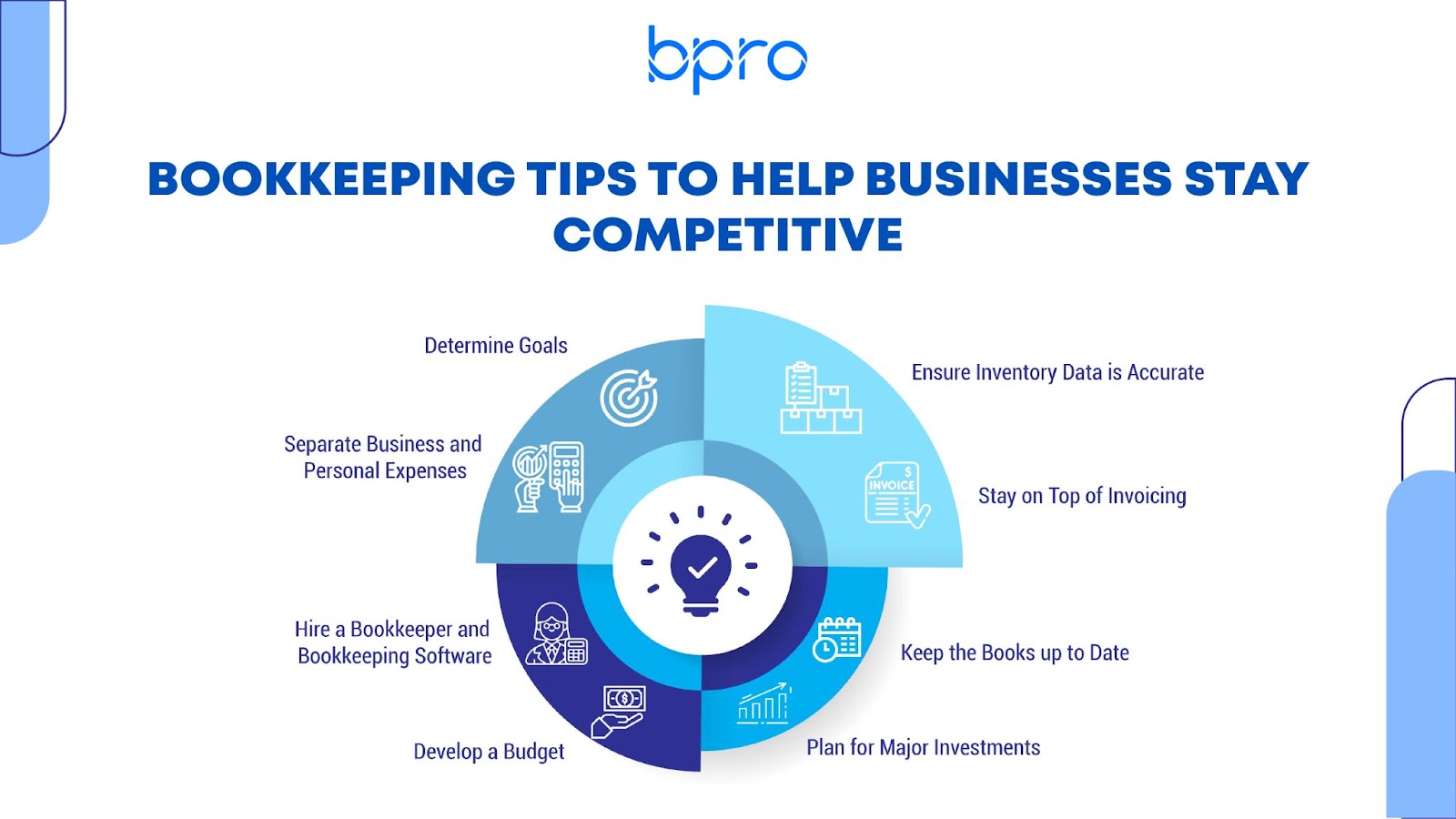For startups and small businesses, the early years are the hardest as they experience new and unexpected challenges of business ownership. Regardless of how much a startup makes or has money, efficient financial management and having a dedicated resource for that process, is a critical part of making a business successful. However, to manage operations, firms need to handle finances appropriately from the start. Bookkeeping and accounting skills are not something that every business starts out with, these are the game-changing essentials that every startup needs to develop or at least have sound knowledge of in order to survive the dreaded five-year bottleneck situation.
Bookkeeping services keep track of a company’s finance, including cash flows, transactions, bank statements, accounts invoices, and much more. Even the most innovative ideas won’t help a startup survive if the cash runs out, thus, bookkeeping holds significance for any business to float.
Top 8 Crucial Bookkeeping Tips Startups Need To Watch For

1 Determine Goals
Usually, when startups or small businesses are unable to handle business books or their current plan starts getting failing they most likely look out for bookkeeping services. However, before getting outsourced bookkeeping, startups need to acknowledge flaws in their in-house process and create goals.
Here are a few reasons, may need to uplift their bookkeeping practices
- Businesses need to file local, state or federal taxes, but their books are inconsistent and don't match with bank accounts or other accounting records.
- The in-house financial management team can't able to be sure enough to accurately classify expenses, income, cash flows and other valuable financial records.
- Requiring reliable and professional financial statements to complete due diligence procedures for acquiring a business loan or funding to scale operations.
- Incapable of identifying the major reasons for inconsistent balance sheets and other business financial statements.
2 Separate Business and Personal Expenses
The first and foremost step a startup needs to take is opening an account in a reputable bank, which can be done after obtaining a business registration number from the local law departments. This is considered a good practice, instead of using personal accounts for business use.
Here are some of the benefits of having a separate bank account;
- Makes easier to track and manage business expenses to take further advantage of tax deductions.
- Offers personal liability coverage by allowing to keep company funds separate from personal finance.
- Provide an option of credit loans that startups can use to cover financial gaps.
However, it's up to businesses, they can choose from a wide range of account types including transaction, savings, credit card or merchant services accounts, which suit the firm’s requirements.
3 Hire a Bookkeeper and Bookkeeping Software
To track business finance and get detailed insights into current standing, bookkeeping plays a critical role. It ensures that startup owners are provided with details insights that can help them make better decisions. However, many business owners lack the skills of handling financial matters, so hiring a dedicated resource or availing of outsourced services is considered an important investment.
On another hand, bookkeeping automated software can also be quite helpful. Businesses can automate their financial management procedures that are hectic as well as time taking by simpling embedding this software into their system. However, startups and small businesses are finding success through cloud-based software. Although due to having small investment capacity small businesses start with the basic packages, as they grow and requirements become complex, they might need to invest in Enterprise resource planning (EPR) systems.
4 Develop a Budget
To streamline business finance with goals and to overcome the risk of getting bankrupt, startups need to develop a budget. However, to create a budget, startups need to work on business plans including the upcoming revenue projections and the list of the company's future expenditures. According to a recent study of JAPAC entrepreneurs, nearly 40% of the startups failed to float due to a lack of business planning including developing the company’s budget. Planning means setting the startup for success.
5 Keep the Books up to Date
Without maintaining business books, owners, as well as employees can’t get a clear picture of the company’s finance. However, automated invoice generation and receipt capturing are the other ways to ensure the books remain updated. Other than this, firms’ can also pair their bank accounts with outsourced bookkeeping software which can then assist businesses in automatically downloading financial reports, statements and credit status in the desired format. Additionally, due to the personalised nature of this software, companies can also define the matching checks into their systems to reconcile the financial statements, which further makes the whole process of reconciliation smooth, easier and transparent. In addition to this, some of the innovative bookkeeping software also offers direct integration with bank accounts that overcomes the need of logging into the banking application to make transactions.
6 Stay on Top of Invoicing
To become credible and gain clients' trust, paying them on time is essential. However, the pandemic situation across the globe has badly impacted the business community and nearly 54% of them are still struggling to streamline invoice payouts.
Late invoice payments can mean:
- Failure to pay vendors, suppliers and banks in case of loan payments
- Inability to make payments for business essential operations including water, electricity or software subscription plans
- Struggle to pay employees
- Inability to scale operations or make business investments
In addition to this, unnecessary delays in client invoices can also put the business at stake, making them more dependent on bank financing, which can further impact the company’s finance adversely.
7 Plan for Major Investments
Making large investments at right time can help startup to scale operations. This can only be done by continuously tracking the business revenue and expenses. Once the owners or development team gets the details reports, they can assess the financial status and separate the funds from the organisation's budgets to make investments. Furthermore, business credit cards can also help to create a credit history it makes it easier to track the credits, loans and when the company will require more capital to stay operational.
8 Ensure Inventory Data is Accurate
To create financial statements, startups need detailed insight into business finance and the current situation of inventory data. Furthermore, to get balance sheets updated, the company’s bookkeepers need to calculate the Cost of Goods Sold (COGS), this further helps to streamline business income statements. However, the inventory can either be tracked manually by counting the items on daily basis or by pairing the records with the company’s bookkeeping software. This will reduce the stress of manually keeping the inventory records, bit will also make data digital that can be tracked from anywhere anytime.
